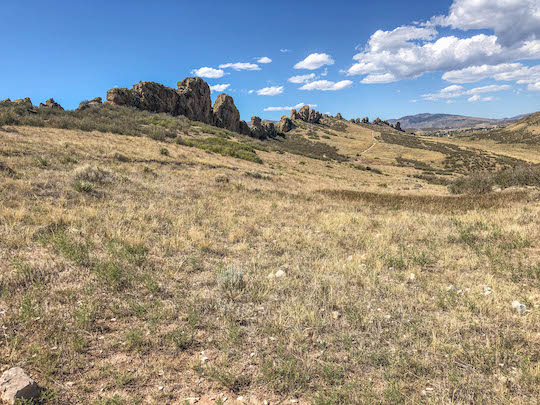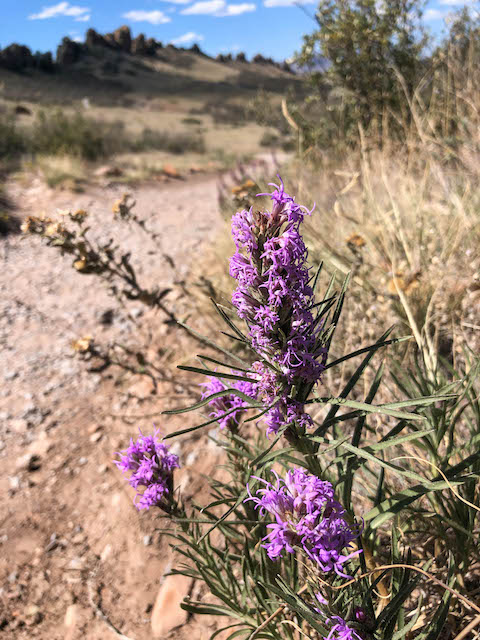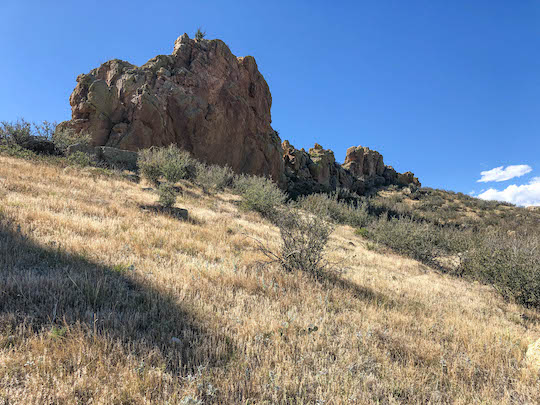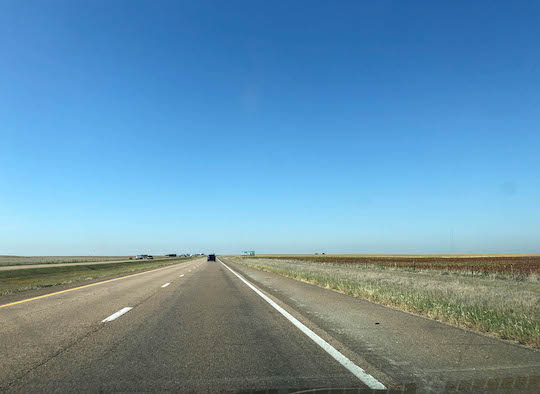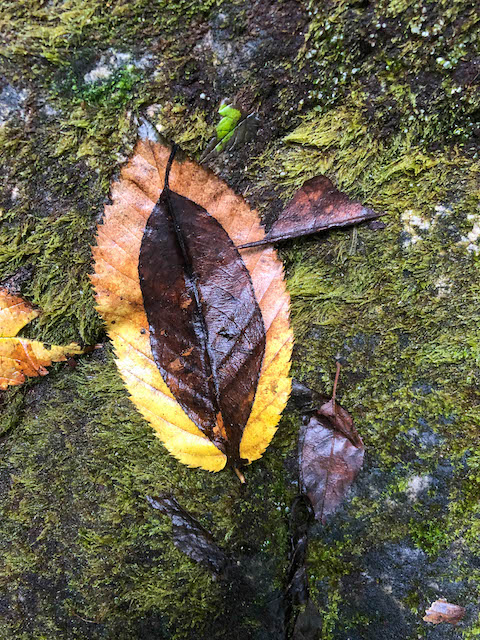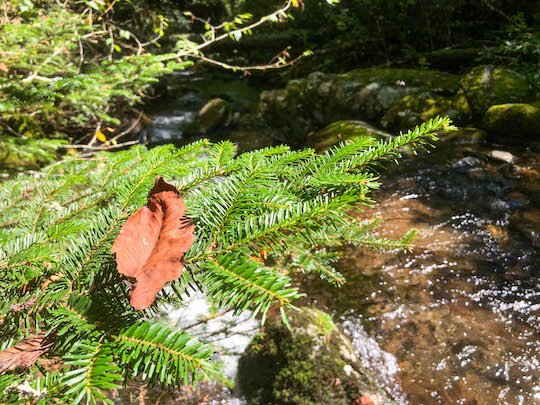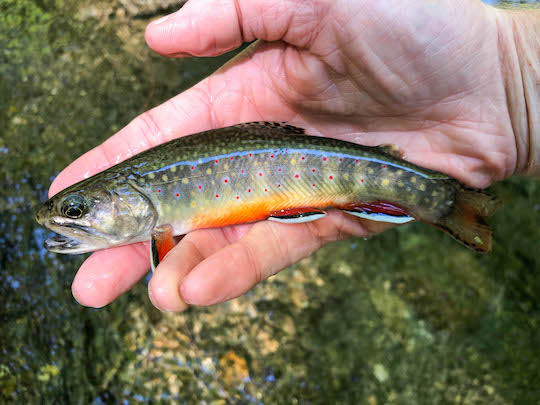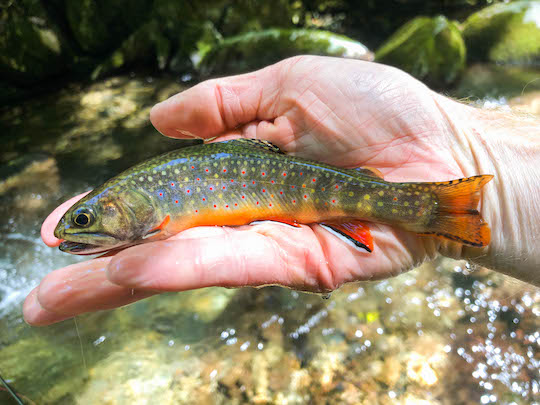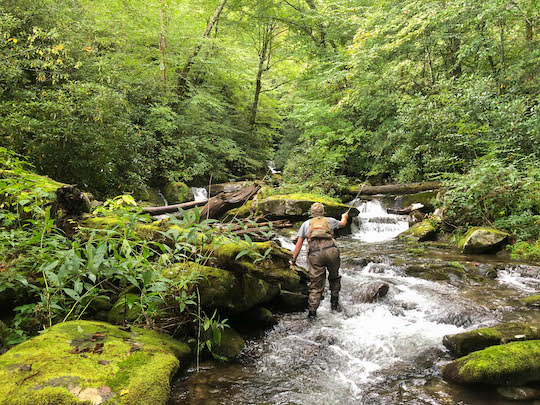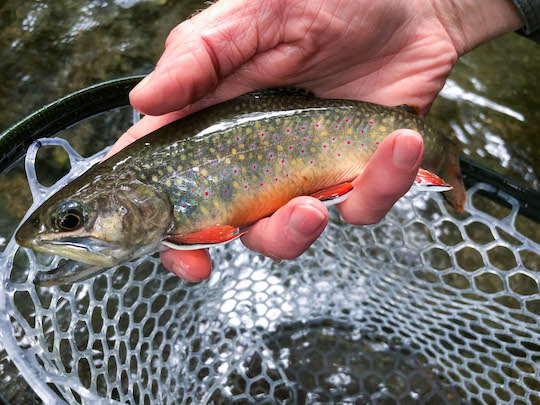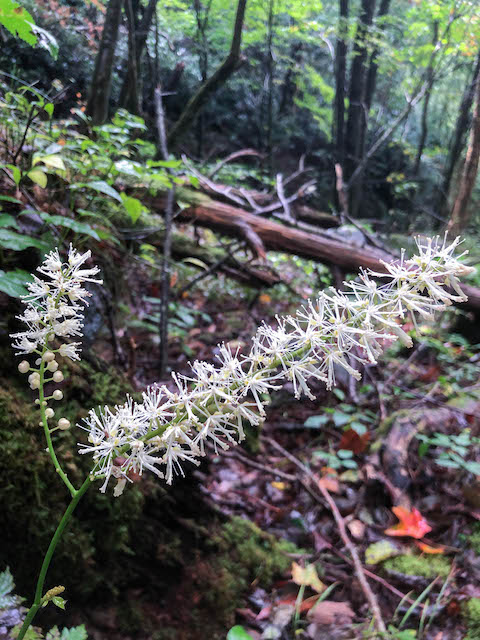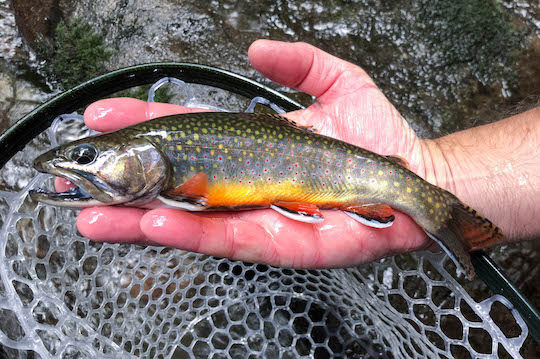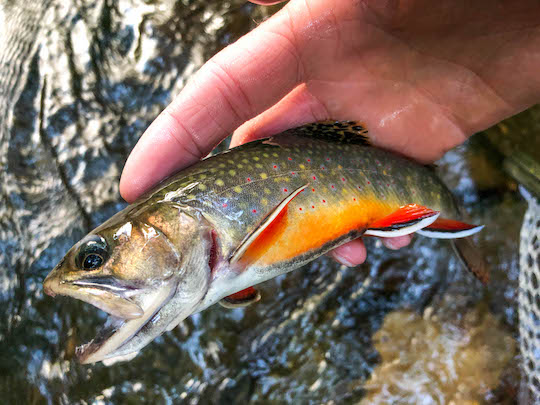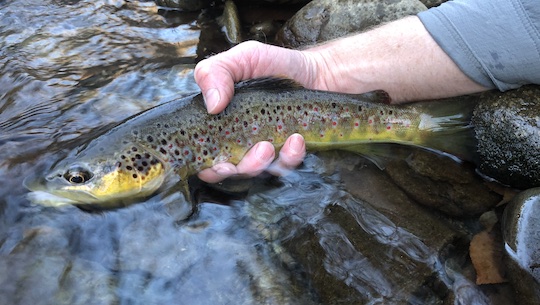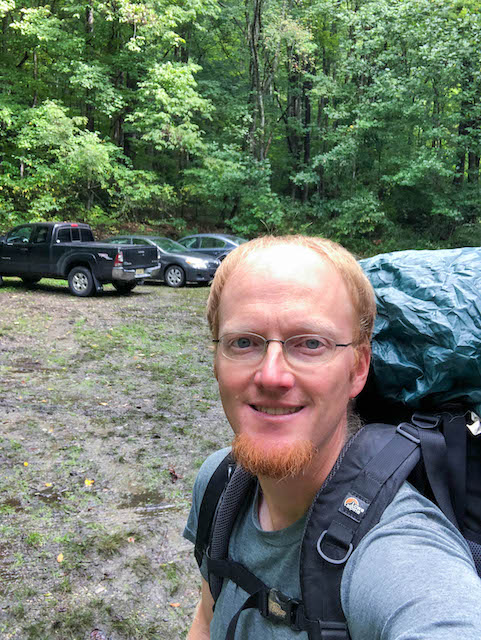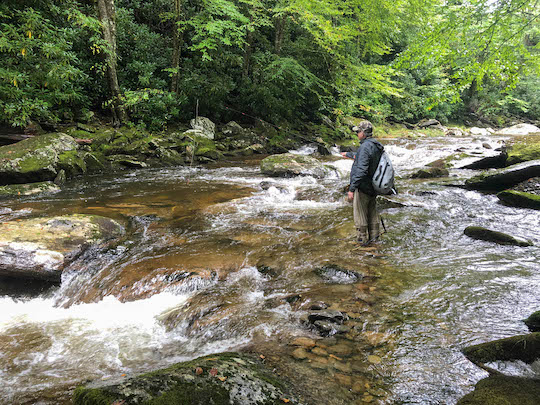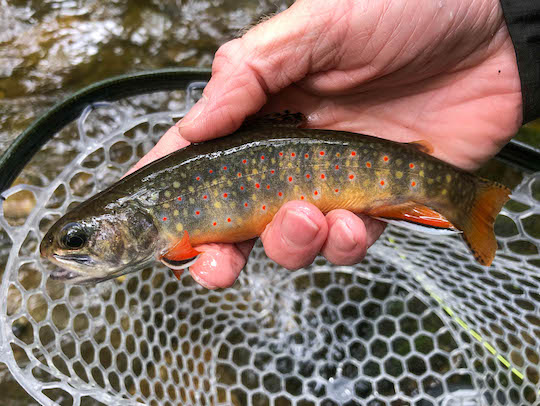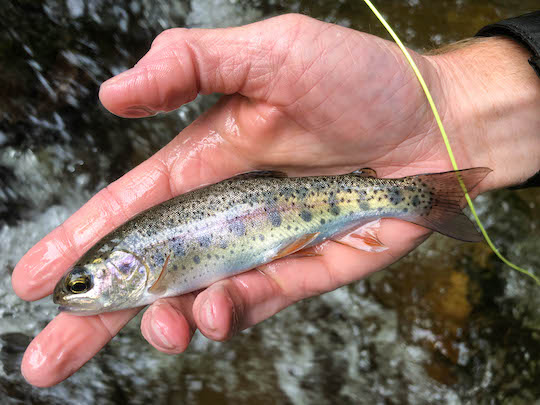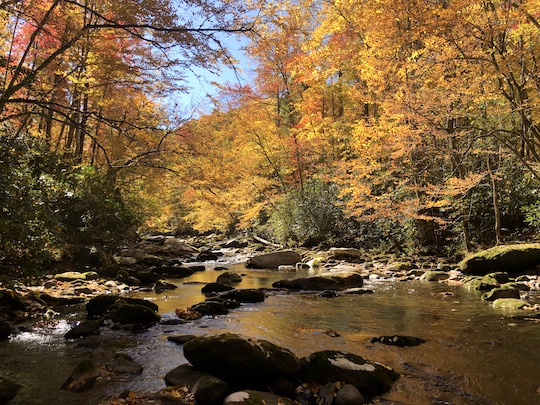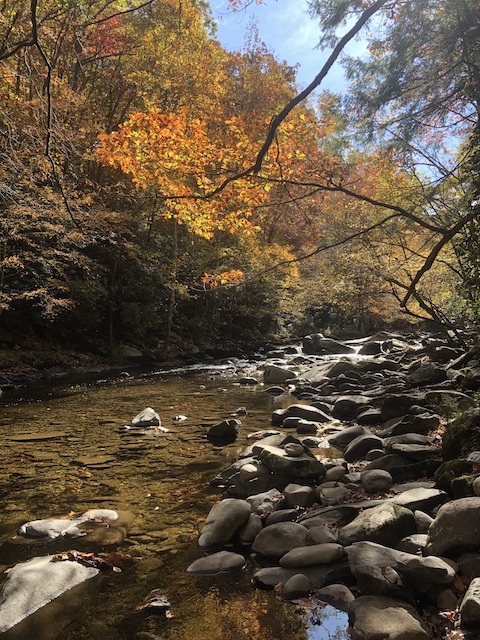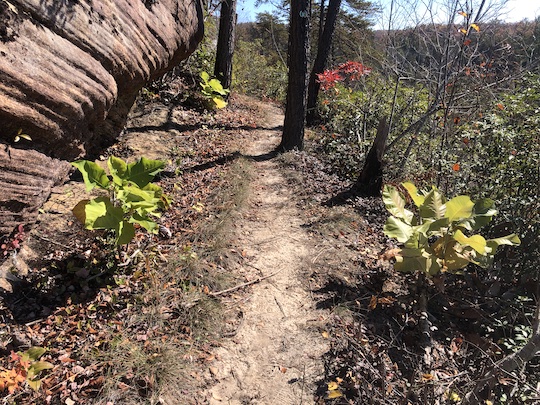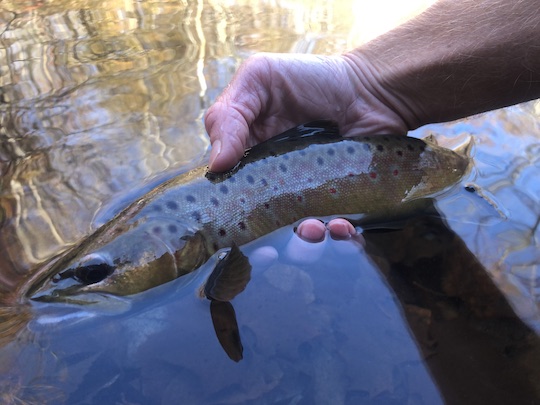Luck. Some people have it. The rest of us try to obtain it. Some through fancy rituals, others by mere chance. Most anglers I know will tell you they aren't superstitious. I know I'm not. But I also know that once a hat loses its luck, mojo, charm, whatever you want to call it, I switch it out for a new one. On some days, I'll pick up a lucky buckeye from along the stream and throw it in my pocket for good luck. Just in case, you know.
As a guide, I see all kinds of luck and skill on a daily basis. There was the one guy who was fishing the Smokies with me for the first time and caught a twenty two inch brown trout within the first few hours. At the time, he immediately tied me for fish over twenty inches caught in the Park. I've since gone on to break that number several times over. At the time, however, I only had one to my name. That goes to show you how uncommon those big ones are.
Another time, a lady who wasn't very experienced was fishing in the front of the boat while her significant other was in the back. At one point, she turned around in the casting brace and was having a full blown conversation with us while her flies and strike indicator dangled under the rod tip in front of the boat. Not only did she hook a twenty inch rainbow trout that way, she also somehow managed to land the fish. Most experienced anglers would have blown that fight.
Then there was the time that a friend/client brought a new guy on the boat. The new guy proceeded to catch two huge brown trout in addition to big numbers and lots of big rainbow trout. The largest brown put him in the running for the Trout Zone Anglers guide trip Fish of the Year. It held up through the rest of the year also. He has since become a good friend and regular client as he keeps trying to recapture the magic from that first lucky trip.
Of course, most anglers are like me and have at least as much heartbreak as they do luck. One of my favorite heartbreak stories happened along the Gunnison River below Blue Mesa Reservoir. My buddy Trevor and I were on a long camping and fishing trip. This was in my college years and we were on one of many grand adventures I had back then. We had stopped there because of the rumor that large trout were sometimes present just below the dam. After an hour or two of fishing with just a couple average trout to show for our efforts, we were ready to head out.
As we walked back up the trail, two cute college age girls came down walking the other direction. As young guys who hadn't seen a good looking girl in a couple of weeks, we both were more than intrigued at these lovelies out in the middle of nowhere Colorado, but the brief encounter was forgotten when I spotted a huge rainbow trout just a few yards further up the trail. Looking down the hill to the water, I was certain this was the largest rainbow trout I had ever seen. At least, it was the largest one that I could get to. Anyway, I informed Trevor that I was going to romp down that bank and catch said fish. "Yeah, okay..." was his reply.
Hooking the fish turned out to be rather easy, but I hadn't accounted for what would happen next. When you're hooked up with 15+ pounds of trout on 5x, you're along for the ride. This is the moment you need a healthy dose of luck. Some skill definitely won't hurt, but you need more than skill at these moments. The rest of the experience was mostly a blur. I do remember jumping from rock to rock, running downstream at breakneck speeds trying to stay with that fish. I also remember watching the backing feeding off my Orvis Battenkill reel while it screamed in protest. Seeing my backing on a fish was a new phenomenon at the time.
What I really remember, however, was screaming at the top of my lungs incoherently in a high shrill voice while I chased the behemoth. Right as the line went limp, I looked up and sitting on a bench above me were the two cute girls watching the screaming idiot spectacle. Trevor was just grinning like the cat that ate the canary. I could only hang my head in shame and head back up the trail, this time making a beeline for the car without looking further for more giant trout.
With background stories like that, you can't blame me for looking for the lucky edge. Thus, once a hat starts to look ragged and a streak of bad luck rears its ugly head, the hat usually gets the blame. With a new hat on my head, my luck usually turns. Occasionally, other items get blamed for bad luck, however.
There was the one time that I was fishing with my wife where I lost two or three really nice brown trout. I started thinking it had to do with the rods. I won't mention which ones, as I have others by the same manufacturer that I love and don't want to throw anyone under the bus. However, I was convinced that the rod tip was getting too much vibration while playing the fish and allowing the hook to work loose. Needless to say, I quit using that rod. Funny thing is, I've lost plenty of other fish over the years on different rods. Clearly, the operator has at least a little responsibility, but as an angler, you always look for something else to explain things away. At the same time, you continue searching for that little edge.
Some people try avoiding certain things that are presumed to bring bad luck. For example, if you've been fly fishing any length of time, you probably know that a banana in the boat is bad luck. Some guides are so serious about this that they question their clients at the beginning of the day to make sure no one has a banana. Of course, then there was that time that my good friend Gary caught a monster brown trout on the Caney. After the required pictures were completed, we sat a few minutes to calm back down. What did Gary do? Pull out a banana, of course, and proceeded to eat it as part of his victory celebration. Seriously.


Other people aren't looking to remove bad luck as much as bring good luck. For many anglers, that comes down to the never ending search for a magic bullet fly. As a fly tier and designer, I continually tweak my patterns, trying to find the perfect combination of ingredients that fish cannot resist. A few flies have come close some of the time but never all of the time. Other things, like new fishing hats, are probably mostly desperate grasping at straws, but I still maintain that a lucky buckeye is always worth having in your pocket.
I've shown these to many friends and clients over the years with varying levels of acceptance. Some people quickly go searching for their own lucky buckeye. Just in case, you know. Others chuckle, but are probably secretly thinking I'm crazy. Then there are the ones that throw you off a little.
One of my favorite times was with a husband/wife set of clients/friends that were fishing with me in the Smokies. We were walking alongside the road to a secret stream access point I knew about. I was feeling good about the location choice, I figured we would find some good success. As a guide, however, I was still looking for any additional edge we could find.
You can only imagine my delight when I spied a lucky buckeye laying practically at me feet. Here was the perfect good luck charm that we could carry with us for a while, then return to the woods when we were done fishing. I picked it up and started explaining the significance of my find. The husband and wife nodded seriously and he almost reverently took it from me to examine this mysterious hunk of good fortune. His wife was also intrigued, and being the kind and devoted husband he was, he decided to give her the good luck for the day. He carefully handed the treasure to her. She looked at it carefully, and appeared to appreciate its significance. We walked a few feet, when out of nowhere, she chucked it off into an impossible tangle of rhododendron while her husband, and I both nearly wept at the loss.
To this day, that is one of our favorite stories that must be recounted anytime we fish together. Oh, and we did find a few fish that day. However, each time we missed a fish, or didn't get a bite from a particularly juicy spot, we lamented the lost buckeye. By the end of the trip, I think all of us were ready to go crawling through the rhododendron to find it.
So, what do you do for good luck when fishing?





